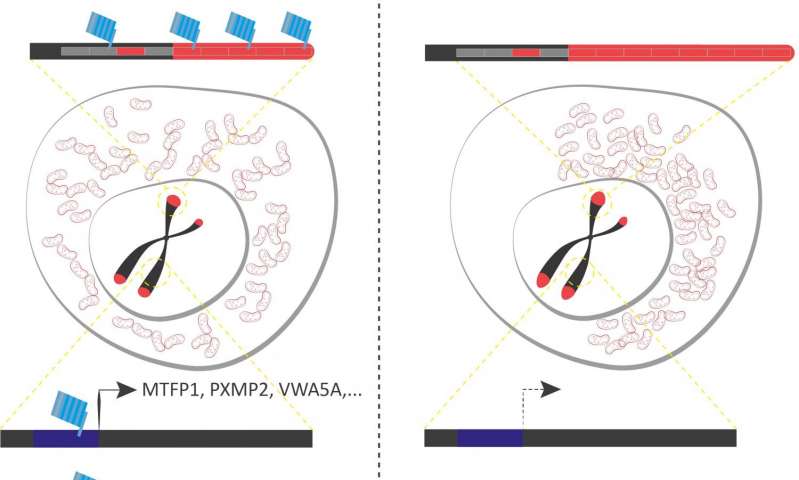The research team led by Dr. Dennis Cape, a special researcher at the Singapore National Institute of Cancer Research (CSI Singapore), discovered the role of the protein ZBTB48 in regulating telomeres and mitochondria and is a key player involved in cellular senescence. The findings will help to better understand the human aging process and cancer development.
The study, in collaboration with the Texas Institute of Dresden, Germany, and the Institute of Molecular Biology (German Institute of Biology, Germany), was published in the May 2017 issue of the EMBO Report.
In vertebrates, telomeres act as protective caps at the ends of chromosomes. At each cell division, telomere shortens, and the loss of the most terminal granules causes the cells to age, the cells stop dividing, and eventually cause cell death. Cancer cells are known to bypass this limit by activating the mechanism that maintains their telomere length, allowing their unlimited proliferative potential. Previous studies have linked telomeres to functional aspects of mitochondria, an essential organelle for cell power plants.
ZBTB48 has recently been found to directly bind to abnormally long telomeres and limit their further growth. The fourth protein that binds to telomeres is known to be unique. The first two proteins, TRF1 and TRF2, were discovered twenty years ago, and Dr. Kappei's research only discovered the third HOT1 in 2013.

In this study, the team found that ZBTB48 not only prevented further telomere elongation in cells that already had abnormally long telomeres, but more broadly in cancer cells, regardless of their telomere length. In addition, the team found that ZBTB48 can activate the production of a specific set of genes, including the mitochondrial gene called MFTP1.
Puyang Linshi Medical Supplies Co., Ltd. , https://www.linshihealths.com